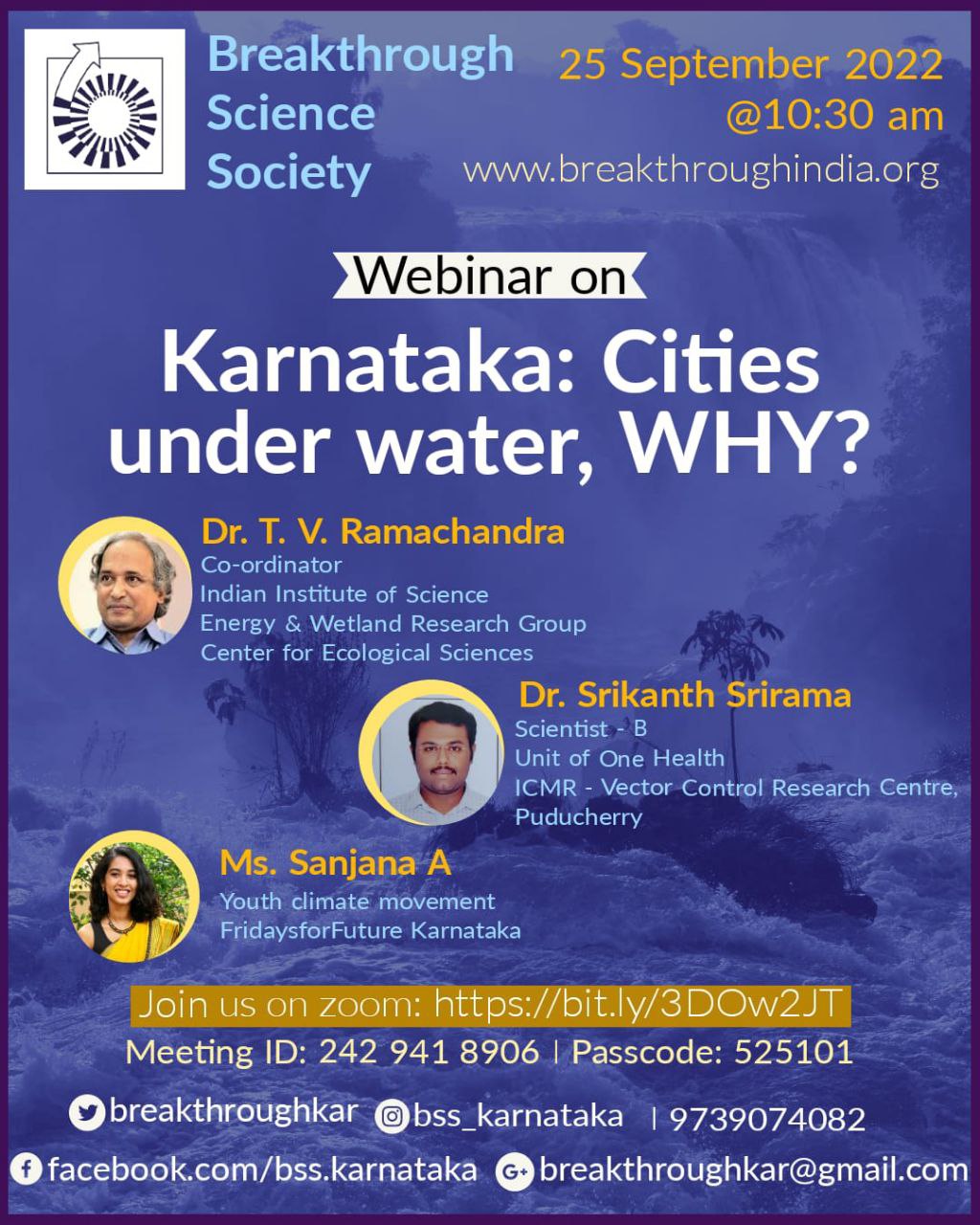A webinar titled ‘Karnataka: Cities under water, Why?’ was organized by BSS, Karnataka on 25 Sept, 2022. Around 60 participants including various citizen’s committee representatives from across Bangalore participated in the webinar. The speakers were Dr.T.V.Ramachandra, Co-ordinator Indian Institute of Science, Energy and Wetland Research group, Dr. Srikanth Srirama, Scientist-B, Unit of One Health, ICMR-Vector Control Research Centre and Ms. Sanjana A, Youth Climate Movement, FridaysForFuture Karnataka.
The highlights of the webinar follows.
Dr Ramachandra said that to restore the natural water reserves of the Bangalore city and to avoid the flooding of certain areas in Bangalore, the encroached areas should be taken back and restored back to the water reserves. Forest encroachment should be curtailed and the percentage of forest cover that should be left untouched should be 33% with a 60% forest cover being left for hilly areas around Karnataka. Bangalore has lost about 88% of the vegetation and 75% of water bodies to urbanisation. The government should ensure to take these back even if it affects the public to avoid major problems in the future. Currently there is one tree per 7 persons in Bangalore but the correct ratio should be 7-8 trees person to restore Bangalore’s old vegetation. Dr.Ramachandra has helped restore natural water bodies in various areas in Bangalore and Karnataka through various projects, he has worked closely with his students and other citizens group to grow a natural environment around the water bodies. He has also taken up projects along with his students to spread awareness on the ecosystem and by helping citizens understand the importance of restoring the natural water bodies.
Dr. Srikanth Srirama touched upon the various diseases that spread through the communities because of the flooding and improper water drainage. Because of the water retention diseases like dengue, chikungunya, malaria; skin diseases like eczema, ringworm, etc; respiratory diseases and psychological affects like anxiety, stress, PTSD etc spread. Bangalore saw the rise of a number of dengue cases in the week preceding the floods. Children are worst affected during these times and face the worst psychological effects. The appropriate response in the event of flooding would be to implement proper integrated disease control measures, have proper water purification systems in the city and wear masks and follow social distancing in case of disease outbreaks. Civic amenities and repair of houses to be implemented in a swift manner and set up counselling centres for those distressed.
Ms. Sanjana A discussed about the climate change aspects that have affected various parts of Karnataka. She highlighted the various projects the FridaysForfuture has touched upon in Bangalore and other areas.
The links of news reports on the program follow..
The Newsminute:
Deccan Herald:
Prajavani (Kannada daily):
The new Indian Express:



